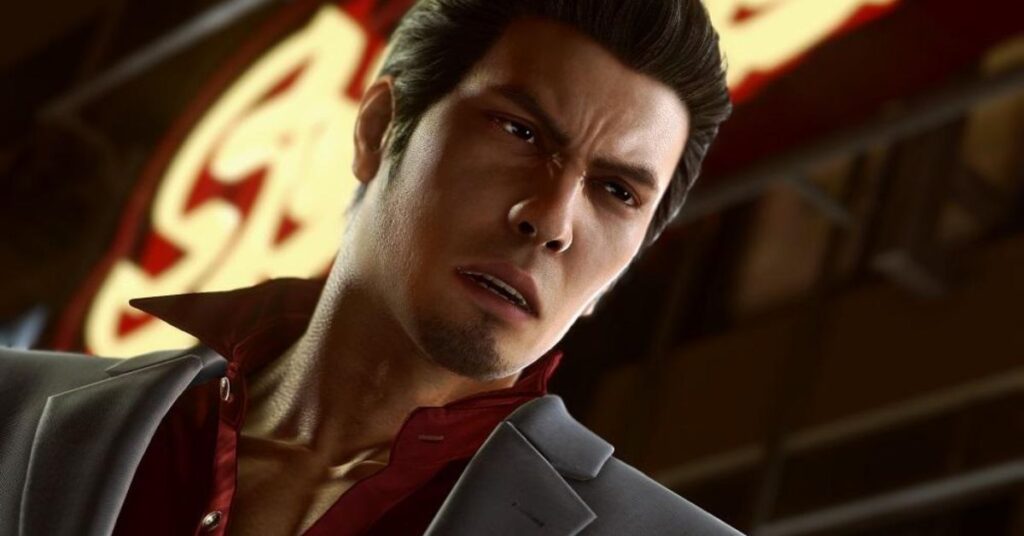
- Developer: Ryu Ga Gotoku Studio
- Publisher: SEGA
- Genre: Action-Adventure
- Series: Yakuza/Like A Dragon
- Released: December 2017
- Platforms: PS4, Windows, Xbox One
- Writer: Masayoshi Yokoyama
Spoiler warning: plot details for Yakuza Kiwami 2
Overview
Yakuza Kiwami 2 is a remake of 2006’s Yakuza 2, the second instalment of the Yakuza series. The action-adventure game’s storyline, gameplay and aesthetic follow suit from its predecessors, Yakuza Kiwami and Yakuza 0, the latter of which acts as a prequel to the first two remakes. Set in fictionalised areas of Tokyo and Osaka in December 2006, Kiwami 2 allows for an open-world exploration of both of these neon-tinted districts from a third-person perspective.
As in the previous games, Yakuza Kiwami 2 follows the adventures of series protagonist Kazuma Kiryu, an ex-yakuza whose attempts to leave his past as a former chairman of the Tojo Clan are once again thwarted by rising tensions in the world of Japanese organised crime. Kiryu finds himself drawn back into the midst of an emerging war between two rival clans; the Tojo Clan of Tokyo and the Omi Alliance of Osaka.
Yakuza Kiwami 2 also provides an additional narrative perspective on events with the addition of a new story scenario The Majima Saga. This standalone playable experience lets players step back into the shoes of the series’ anti-hero and fan-favourite character Goro Majima. The Majima Saga is a key contextual narrative addition to Yakuza Kiwami 2, as it provides much-needed answers to plot holes left in Majima’s story from the ending of Yakuza 0 and after the events of Yakuza Kiwami.
Personal context
As a relative newcomer to the Yakuza/Like A Dragon series, my analysis of the game narrative is made with the following considerations in mind.
- I’ve approached the series in sequential order, not chronological order.
- The first game I played from the franchise was Yakuza 0, followed by Yakuza Kiwami, and then Yakuza Kiwami 2.
- I recently started playing Yakuza 3, but that’s as far into the series as I’ve got.
I’ve played these games on Xbox One with language and audio settings set to Japanese, with English subtitles. I feel that this option allows me to experience a fuller sense of immersion in the game’s story, and to experience the sights and sounds of early 00’s Japan as the developers intended.
Key Characters
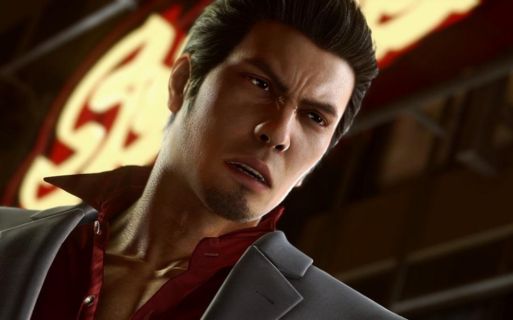
Kazuma Kiryu – The player character. Also known as ‘The Dragon of Dojima’, Kiryu is trying to live a crime-free life with his adopted daughter Haruka. However, after the assassination of the Tojo Clan’s fifth chairman, Kiryu finds himself dragged back into the criminal underworld of the yakuza and forced to face down a new enemy.
Kiryu demonstrates a much more interesting character arc in Yakuza Kiwami 3 than in the previous games. He’s a skilled fighter and is highly respected, although socially he’s quite reserved, bordering on awkward. His stoic veneer finally cracks open in this story, providing some welcome relatability and real charm. For the first time in the series, I found myself rooting for the hero I was playing.
Ryuji Goda – The principal antagonist and son of the rival Omi Alliance chairman. Ryuji’s quest for power and leadership takes him into some dark territory. He’s an engaging villain with charisma and ambition that set him apart from the rest of the thuglike yakuza Kiryu encounters. Ryuji wants to defeat Kiryu to claim the honour of being the one true dragon in the yakuza world.
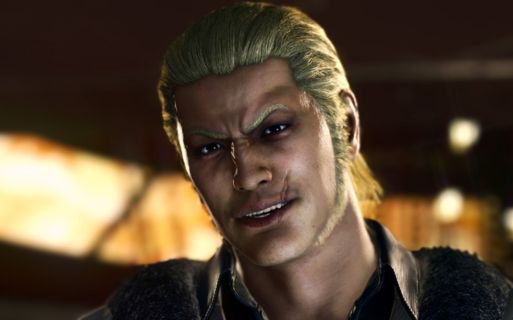
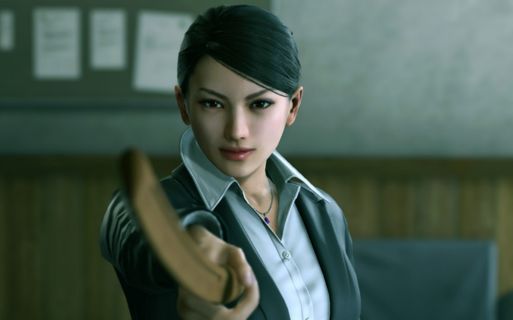
Kaoru Sayama – The highly-skilled lead police detective of Osaka’s organised crime division. She’s significant, not least because she’s the first female character in the Yakuza series that could viably take on the role of a protagonist herself. However, she has a key role to play, both in the overall narrative of Yakuza Kiwami 2 and in Kiryu’s character development.
Goro Majima – Kiryu’s longstanding ally/sparring partner, who is also a playable character in The Majima Saga. Majima’s personal story from Yakuza 0 to Kiwami 2 has some considerable unanswered questions. Players can finally get some closure on them in this game, and it’s an experience that’s written wonderfully.
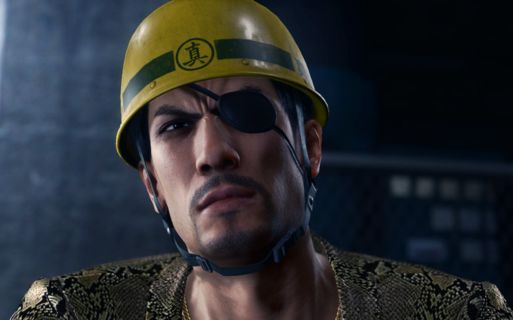
Gameplay
As with other Yakuza games, Kiwami 2 features an episodic, chapter-based gameplay loop, which centres on bursts of exploratory action, combat encounters and adventure. These episodes include a narrative structure that employs a range of dramatic and comedic elements to advance the overall plot of the game. It’s an enjoyable dance of light and shade that excels in keeping you hooked on the wider storyline.
Players have plenty of opportunities to develop a variety of fighting skills during Kiryu’s adventures in Kamurocho and Sotenbori. Beat-em-up-style brawling is another core gameplay component in the Yakuza titles, and Kiwami 2 is no exception. Combat is more fluid and rewarding thanks to the use of the Dragon Engine technology that the remake was built in. With that said, fight encounters can become a tad repetitive, but the addition of lootable weapons and allies that can be recruited to help in fights is another step up from prior games.
There’s also a range of entertaining minigames and side quest content for players to indulge in at their leisure. These include activities such as darts, karaoke, golf, playing arcade games and moonlighting as a glamour photographer, amongst other things. Whilst enjoyable, a couple of these minigames do feel a bit off-kilter with Kiryu’s honourable but somewhat closed-off personality, in particular the Gravure photography game. Regardless, these side-stories and minigame experiences lean heavily into the early 2000s Japanese nightlife vibe and aesthetic that adds a nostalgic layer of authenticity to Yakuza Kiwami 2.
Economy
The game economy in Yakuza Kiwami 2 is based on XP-based progression. Players can use their XP points to purchase abilities on Kiryu’s skill tree. Skills are segmented into Strength, Agility, Spirit, Technique and Charm abilities, which players can pick and choose from to suit their playstyle. XP can be accumulated in a variety of ways and isn’t limited to completing missions or objectives.
Eating at restaurants, taking part in sub-stories, playing minigames and defeating enemies on the street are just a few of the ways players can be rewarded for exploring the game. This approach further cements the developers’ commitment to immersion and enhances the feeling of experiencing the protagonist’s real life as he goes about his adventures. When economy and gameplay work in tandem with the narrative experience, the game’s story feels more authentic and enjoyable and supports the overall player fantasy much more effectively.
Narrative analysis
Yakuza Kiwami 2 shines in its character-based and melodramatic approach to storytelling. At the outset of the story, we meet Kiryu with his recently adopted daughter Haruka as they reminisce on the events of the past year in the graveyard. This provides an opportunity for players to interact with the gravestones to ‘remember’ everything that happened in Yakuza Kiwami, in scenes reminiscent of a reality TV series recap. It’s this playable soap opera-style tone that sets the bar for what’s to come in Kiwami 2, and it’s a tone that works incredibly well in delivering a compelling crime drama narrative that’s packed with entertaining moments and emotional turning points for its characters.
Kiryu is a character that I previously found hard to warm to. In Yakuza 0, he felt too stereotypically tough and heroic, without any noticeable or relatable character flaws. In Yakuza Kiwami, a somewhat warmer side came through in his apparent affection for childhood sweetheart Yumi, who later turned out to be Haruka’s mother. However, his character didn’t undergo any major shifts throughout those stories and remained a fairly straight-laced hero throughout. Even in his decision to take Haruka in and raise her as his own, I was still left wondering if he did this purely out of a sense of duty to his lost love Yumi, rather than out of a genuine desire to be a father figure to Haruka.
However, in Yakuza Kiwami 2 Kiryu finally begins to demonstrate distinctly more human qualities and becomes more open with his emotional responses towards Haruka and other characters in the game. This subtle but vital shift in personality occurs gradually throughout the narrative, and is one of the most compelling aspects of the storytelling, in my opinion. The chapter-based approach to the story works to cement this, as it feels as though you’re playing through a dramatic instalment of a real event in Kiryu’s life. As a result, it gets harder to resist pressing play on the metaphorical next episode.
Story Structure
The game’s presentation is akin to that of a playable soap opera. Each new chapter feels fresh but sequential. This allows the plot to be revealed in small sections at a time, with new twists thrown into the mix as you progress through the narrative. Such a structure helps with pacing, as you don’t feel that you’re rushing through the story but you know that you are making steady progress through a certain course of events. While it’s clear that the narrative is linear, the addition of open-world exploration in each chapter prevents the story from feeling completely on rails.
It also allows for a realistic sense of character development. At the beginning of the game, Kiryu’s character in particular feels quite rigid and two-dimensional. It’s understandable; he’s been through a lot and is dealing with the loss of his best friend and childhood love. He’s also now got the new responsibility of looking after a young child, and is trying to start a new, crime-free life. However, as events unfold, Kiryu’s emotions emerge much more fully and the episodic structure of the narrative underpins this effectively, leaving you constantly wanting more.
Plot and settings
Yakuza Kiwami 2 also makes effective use of short but riveting cutscenes and flashbacks that propel the plot forward or provide historical context at necessary intervals. This helps you to gain a deeper insight into certain characters’ choices, actions and motivations. The plot itself isn’t entirely easy to predict, despite some of the encounters and settings making it obvious at times that a fight is about to take place. There are lots of twists and turns in the main story, which coupled with the soap opera delivery makes for addictive and highly compelling gameplay. Themes of crime, conspiracy and retribution feature heavily alongside revelations about love and family; all things that make for highly enjoyable dramatic storytelling.
The game’s settings also underpin the narrative structure effectively, with such a complex story being told across a two-city setting. Kamurocho and Sotenbori are incredibly vibrant and engaging in their design and artistic style, with both districts offering lots to discover and do outside of the main storyline. Kiwami 2’s comprehensive but compact worldbuilding works to communicate the sense of place, time and dramatic tone of the wider plot, as does its inviting and immersive sound design.
Travelling between the two cities at different points in the adventure provides moments of calm and allows for greater player agency when it comes to exploration outside the main plot. This is an excellent approach to a linear narrative such as this one, as there’s a wealth of optional and additional side content for players to engage with as they see fit.
Main character development
At the heart of the Yakuza series are its characters, with Kazuma Kiryu featured most frequently as the lead protagonist. As well as providing Kiryu with an introduction to fatherhood, this game gives him a first real shot at a romantic relationship, thanks to the bond he develops with police detective Kaoru Sayama throughout the story. As a result, the stakes of the story gradually become a lot more believable and emotionally compelling for the player.
For me, this was the first time that Kiryu felt like a character I could really understand. At the beginning of the game, I wasn’t entirely sure of his motivations for going on this journey, other than out of a sense of duty. It does take quite a few chapters for things to become more evidently meaningful for him. However, when this happens it’s a refreshing change and adds a new layer of nuance and depth to the good-hearted gangster’s personality. It helped me to understand what he really wanted, aside from the surface-level desire to carry out his perceived duty to his former clan. In the romantic subplot, Kiryu demonstrates a desire for a loving relationship and a family unit of his own, away from his criminal past. The narrative also seems to position Sayama’s character as a potential maternal figure for Haruka, which suggests that she could have a role to play in future games.
Kiryu and Sayama seem at odds for the majority of the game, and while I’d hoped for a romantic element to round out Kiryu’s woodenness a little bit, I was quite surprised to see it actually happen. It finally showed that there’s more to Kiryu than simply being the driven-by-duty but socially-stilted fighting machine he’d been presented as up until that point.
This chalk-and-cheese pairing interlinks thematically well with the game’s aesthetics and mechanics. This isn’t a love story with romantic picnics set on the rolling hills of beautiful countryside. Nor is it the story of a damsel in distress and the dashing knight who saves her. Sayama is a highly trained, academically gifted police detective and Kiryu is in her custody for most of the story. They’re both capable in combat and used to aggressive encounters with career criminals. Their lives are fast-paced and set against a backdrop of neon excess and dark dangers. As a result, their emerging relationship is an unlikely but powerful combination that makes sense in the world they both live in.
It’s not all about the romance though. Yakuza Kiwami 2 provides players with a deeper understanding of Kiryu’s personality and motivations through the wider game narrative. We’re shown more about his youth and history through flashback scenes in conversation with Sayama and other characters. It also becomes clearer why he feels compelled to return to Kamurocho and try to calm the brewing storm between the Tojo Clan and the Omi Alliance, with the satisfying rivalry that develops between Kiryu and antagonist Ryuji Goda adding another layer of character motivation into the mix. Kiryu knows he has to stop Ryuji’s quest for power before he crushes the Tojo Clan and takes control of Kamurocho completely. This is made more difficult by revelations about Ryjui’s past later in the story. By the game’s climax, it feels feasible that in another life, the two enemies could have become friends. However, the two men know that in the world of the yakuza, there can only be one dragon.
By the end of the adventure, the story’s events provide a drama-filled journey for players to enjoy, but more importantly, they serve as a vehicle for the deeper level of character development that Kiryu has desperately needed.
Summary
Ultimately, the complexity of Yakuza Kiwami 2’s crime-conspiracy plot is underpinned by a story about love, family and loyalty, played out by a rich and well-crafted cast of characters. It’s a game that packs the slow-burning emotional punch for Kiryu’s character that Majima’s character arc had back in Yakuza 0, which is a welcome shift.
The Majima Saga can be played as a side-story after unlocking Chapter 5 in the main game. While it’s a smaller adventure and has no impact on the events of the main game, it adds further context to Majima’s current situation as the boss of a construction company in Kamurocho. More importantly, it provides insight as to what happened to him between the events of Yakuza Kiwami and the start of Kiwami 2. This ties up some incredibly satisfying narrative loose ends and further demonstrates why writing and developing characters over a longer franchise can be highly impactful for an invested audience.
It’s this character-driven approach to story that makes the Yakuza series work, in my eyes. Kiwami 2 is a fantastic story but it works well as a gameplay experience because of the depth of understanding of its main characters that players come to have across its episodes. Coupled with the immersive and lifelike worldbuilding, fun and interactive combat and minigame mechanics, moments of comic relief and high-crime drama, Yakuza Kiwami 2 delivers an exciting and moreish narrative experience that complements the criminal underworld it takes place in fantastically well.